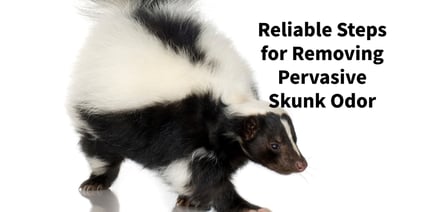Sub-floors in homes are generally plywood or concrete. Gravity eventually pulls pet fluids down into porous wood or concrete. Treatments generally only impact the surface of these sub-floors. During the drying process, the pet deposits wick back to the surface and pad resulting in a return of the odor. In these situations, the pad will need to be replaced and the sub-floor will need to be sealed.
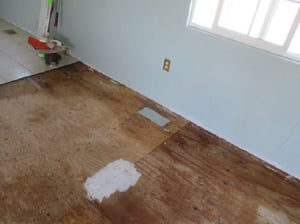
Step One: Remove all the carpet and pad from the floors. The discolored areas of the plywood identified the areas of severe contamination.
Step Two: The limitations of removing urine from wood (concrete as well) result in the application of bacterial treatment. This treatment over a few days will break down and digest contaminants on the top surface of the substrate. Additional treatment may be necessary to neutralize the escaped odors. The floor will need to be dry and swept before the next step.
Step Three: At this point, it is best to put a coating over the contaminated areas. A water-based acrylic coating is the best choice. This will be applied like paint. Some coatings will also have fragrances and an odor encapsulant. The odor encapsulant should deal with any remaining odors. A special fragrance will help with the psychologically perceived odor for the owner before placing the pad and carpet back into place. Some fans placed appropriately will dry the floor faster with sealer drying clear or with a white haze.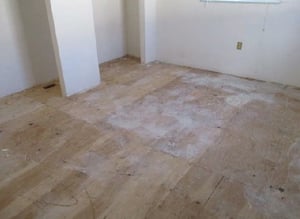
In short, this is the preferred method for carpet and pads which are beyond restoration. Most sub-floors will not have lost their structural integrity and can be treated in the manner described above.
Featured Products
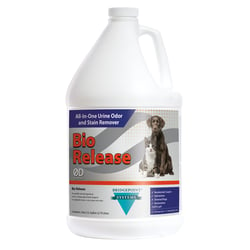
Bridgepoint Systems, All-In-One Urine Stain and Odor Solution, Bio Release, 1 Gallon
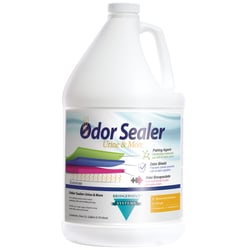
Bridgepoint Systems, Odor Sealer, Odor Sealer: Urine and More, 1 Gallon
Enjoyed reading this post? Read the following articles:


